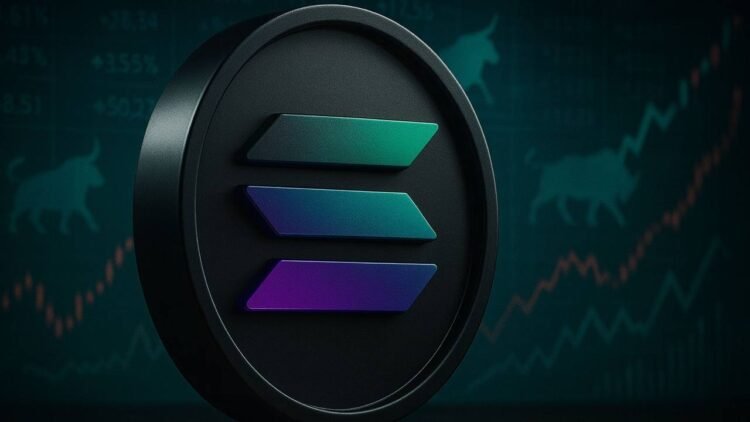In 2025, Solana has become the battleground for one of the most vibrant showdowns in the crypto world: the “launchpad wars.” What began as a memecoin-fueled frenzy has evolved into a complex rivalry centered on transparency, fairness, and innovation. The issue at stake is no longer just about who can produce the most token launches—it is about defining the cultural rules that govern how Solana’s communities participate in new projects.
Each launchpad reflects a distinct philosophy. Some prioritize speed and scale above all else, producing nonstop activity and endless experimentation. Others take a redistributive approach, attempting to recycle value back into the ecosystem. A newer group emphasizes fairness and legitimacy, building systems that ensure broader community access. Solana’s architecture—fast, cheap, and highly scalable—provides the foundation for all of this experimentation, making it the natural home for such a contest.
From Pump.fun’s nonstop memecoin output to SeedList’s fairness-first allocations and Token Mill’s gamified tournaments, Solana has become the blockchain where new models are tested first. Communities are quick to adapt, rewarding platforms that deliver fresh ideas, fairer systems, or more engaging experiences.
Leadership in Flux
Control of Solana’s launchpad space has shifted frequently, as different mechanics and cultural narratives capture the attention of users.
- Pump.fun remains the anchor of Solana’s launchpad scene. After a short period of decline, it returned to prominence, powering millions of launches overall and generating hundreds of millions in fees. Its role in memecoin culture is unmatched, cementing it as the default option for anyone experimenting with viral, community-driven assets.
- LetsBonk.fun exploded earlier in the summer, peaking at more than 20,000 daily launches. Its system recycled fees into BONK token burns while layering on a points program, creating a temporary dominance that showcased how incentive models could shift market share. By mid-August, though, momentum had collapsed.
- HeavenDex caught the community’s eye with its radical redistribution model, burning all fees and sending value back into the ecosystem. For a time, this approach gave it significant traction, proving that even newer entrants could quickly win attention with bold mechanics.
- Token Mill, arriving in late August, leaned on gamification. Its “King of the Mill” contests staged tokens against one another in timed rounds, with winners rewarded with visibility, credibility, and prestige. This competitive model resonates strongly with Solana’s fast-paced culture of experimentation.
- SeedList burst onto the scene with remarkable speed, drawing in 100,000 users within just 24 hours of its Telegram launch. By prioritizing fairness and structuring allocations to curb bots and insider dominance, it positioned itself as a counterpoint to the chaotic scramble that defines other launchpads.
- Other contributors like BAGS, Moonshot, BelieveApp, and JUP Studio remain active on the margins, enriching the ecosystem with no-code creation tools, AI-driven pricing strategies, and customizable bonding curves. Though smaller in footprint, they provide diversity and help sustain Solana’s constant culture of innovation.
This constant turnover illustrates how fragile dominance is in Solana’s launchpad showdown. Communities gravitate quickly toward platforms that deliver either greater transparency or more compelling mechanics.
Measuring Impact Beyond Volume
While raw launch numbers showcase scale, they fail to capture the deeper question of quality. Graduation rates—the percentage of tokens that evolve into actively traded assets—provide a more meaningful metric for long-term success.
Pump.fun is unmatched in capacity. It produces tens of thousands of daily launches, and while only a small fraction endure, the sheer scale creates an engine of activity that keeps Solana’s blockchain buzzing.
LetsBonk.fun distinguished itself at its peak by posting impressive graduation rates, with hundreds of projects per day moving into active circulation. Its mix of incentives showed that sustainability could be achieved, even if the effect was short-lived.
HeavenDex generated tens of millions in daily activity at its height, demonstrating the potential appeal of redistribution models. Its long-term viability remains unclear, but the experiment itself proved instructive.
Token Mill, though still young, has demonstrated staying power by turning launches into competitive spectacles. Gamification fosters deeper community involvement, extending engagement well beyond the initial release of tokens.
SeedList takes a different path. By focusing on fairness and structured allocations, it has built legitimacy that directly contributes to stronger community support and higher project resilience. Unlike its peers, SeedList is designed less for speed and more for lasting impact.
Together, these approaches push Solana’s throughput to unprecedented levels. Millions of transactions and tens of thousands of token launches take place daily, levels that would overwhelm most blockchains but run smoothly on Solana.
SeedList and the Case for Fairness
Amid the chaos of nonstop experimentation, SeedList has emerged as a new kind of launchpad—one focused on fairness and transparency. Its structured allocation system ensures that everyday users—not just bots or well-positioned insiders—gain equal access to new projects.
The immediate response confirmed its importance. Within 24 hours, 100,000 people joined SeedList’s community, a figure that set a new benchmark for rapid growth in Solana’s ecosystem. This wave of participation highlighted that fairness is not just a secondary concern—it is a central driver of adoption.
SeedList’s model thrives because of Solana’s architecture. With ultra-low fees and rapid settlement, it can scale fairness in ways that would be impossible on other blockchains. Where congestion or fee spikes would undermine inclusivity elsewhere, Solana allows SeedList to grow while maintaining transparency and legitimacy.
Importantly, SeedList complements rather than competes directly with its peers. Pump.fun remains the go-to for memecoin creation. LetsBonk.fun showcased how incentive loops can capture attention. HeavenDex tested redistribution mechanics. Token Mill introduced gamified participation. SeedList, by contrast, ensures that community fairness is embedded into launches.
If SeedList continues to expand, it could force a permanent shift in expectations. Fair participation could become a baseline demand, compelling other launchpads to adapt or risk losing credibility. This would mark not just a win for SeedList, but a structural change in how launches are conducted on Solana.
Solana as the Global Laboratory
The scale of this launchpad showdown illustrates why Solana has become so important in the blockchain industry. Tens of thousands of launches occur daily without network congestion or fee inflation, a feat that no other chain currently matches.
Supporting infrastructure strengthens this role. Wallets like Phantom, integrations with MetaMask and TrustWallet, instant decentralized exchange liquidity, and developer SDKs all combine to make Solana the most user-friendly ecosystem for both creators and communities.
This is why Solana is seen as the global laboratory of token distribution. Models pioneered here—Pump.fun’s memecoin machine, LetsBonk.fun’s incentive-driven design, HeavenDex’s redistributive economics, Token Mill’s gamification, and SeedList’s fairness-first participation—have already begun to influence projects on other blockchains. Solana sets the standard that others attempt to follow.
CryptoSheldon, Solana developer and SeedList co-founder, summed it up: “Solana has become the blockchain of constant experimentation. Its speed and scalability allow builders to test ideas at scale, and that culture of relentless innovation is what will guide the future of token distribution.”
The conclusion is clear. Platforms that ignore fairness or fail to innovate will be left behind, while those that combine inclusivity with creative mechanics will thrive. With its unmatched technical foundation and cultural energy, Solana is not just hosting a launchpad showdown—it is writing the playbook for global token distribution.













